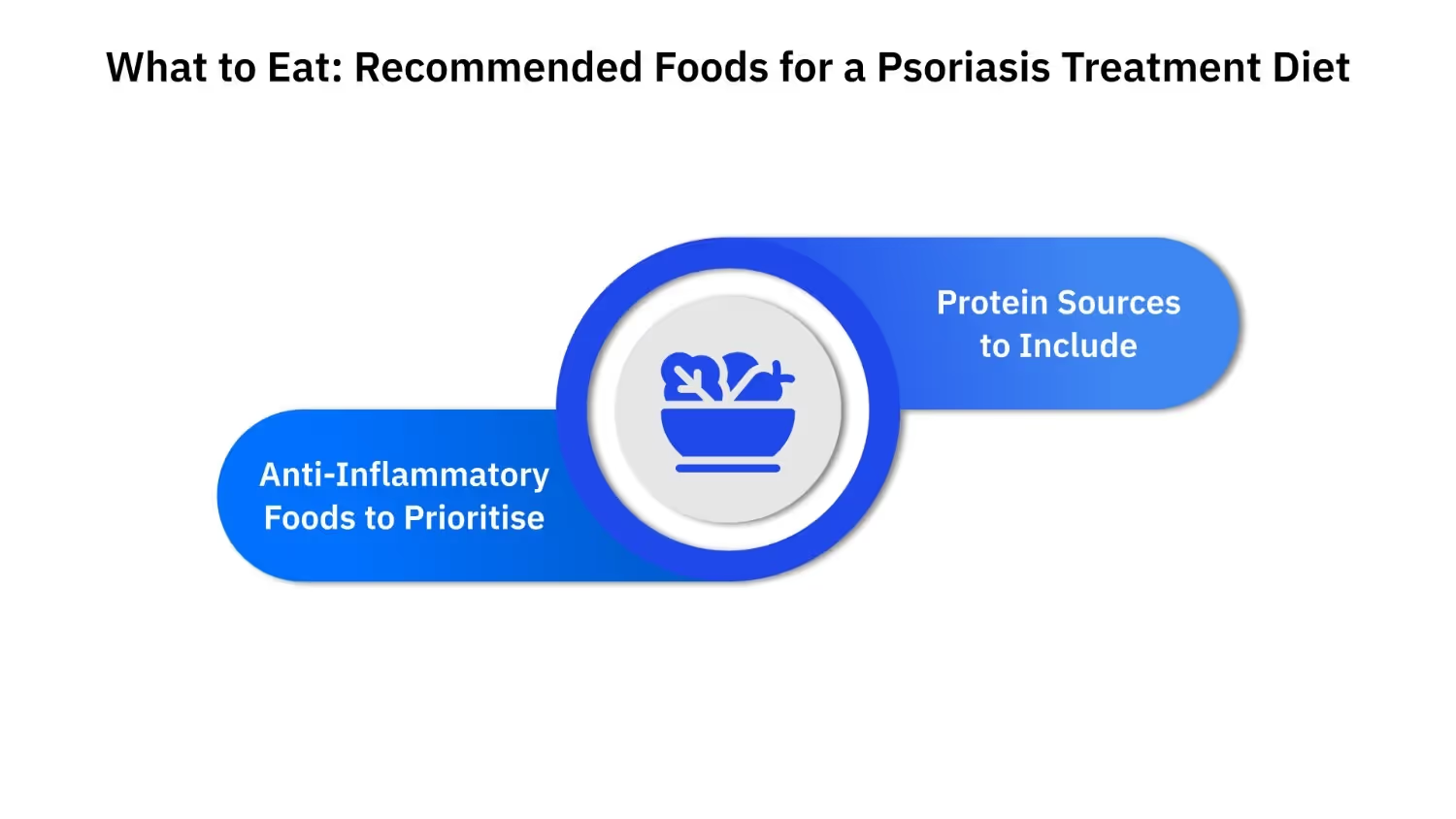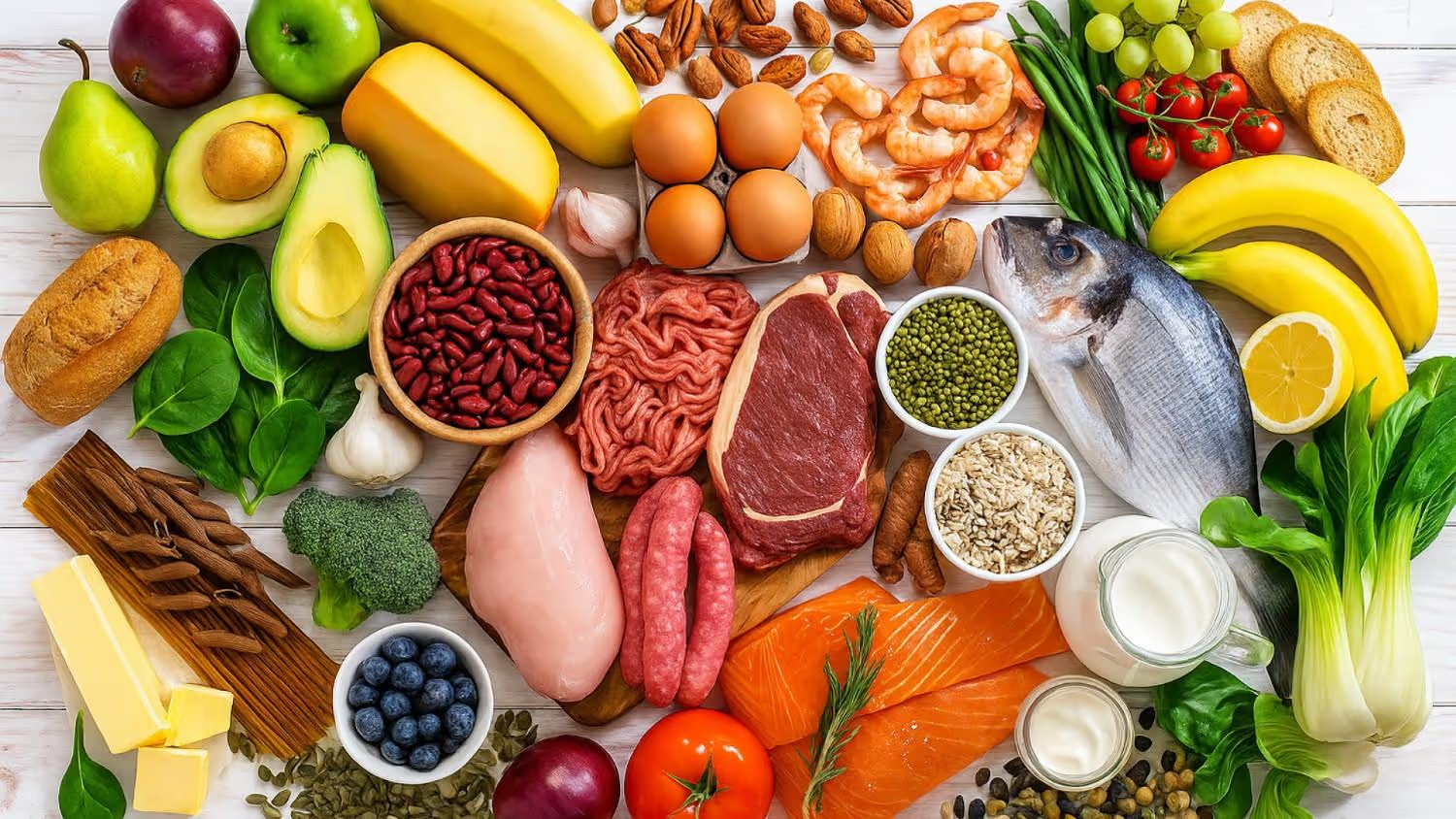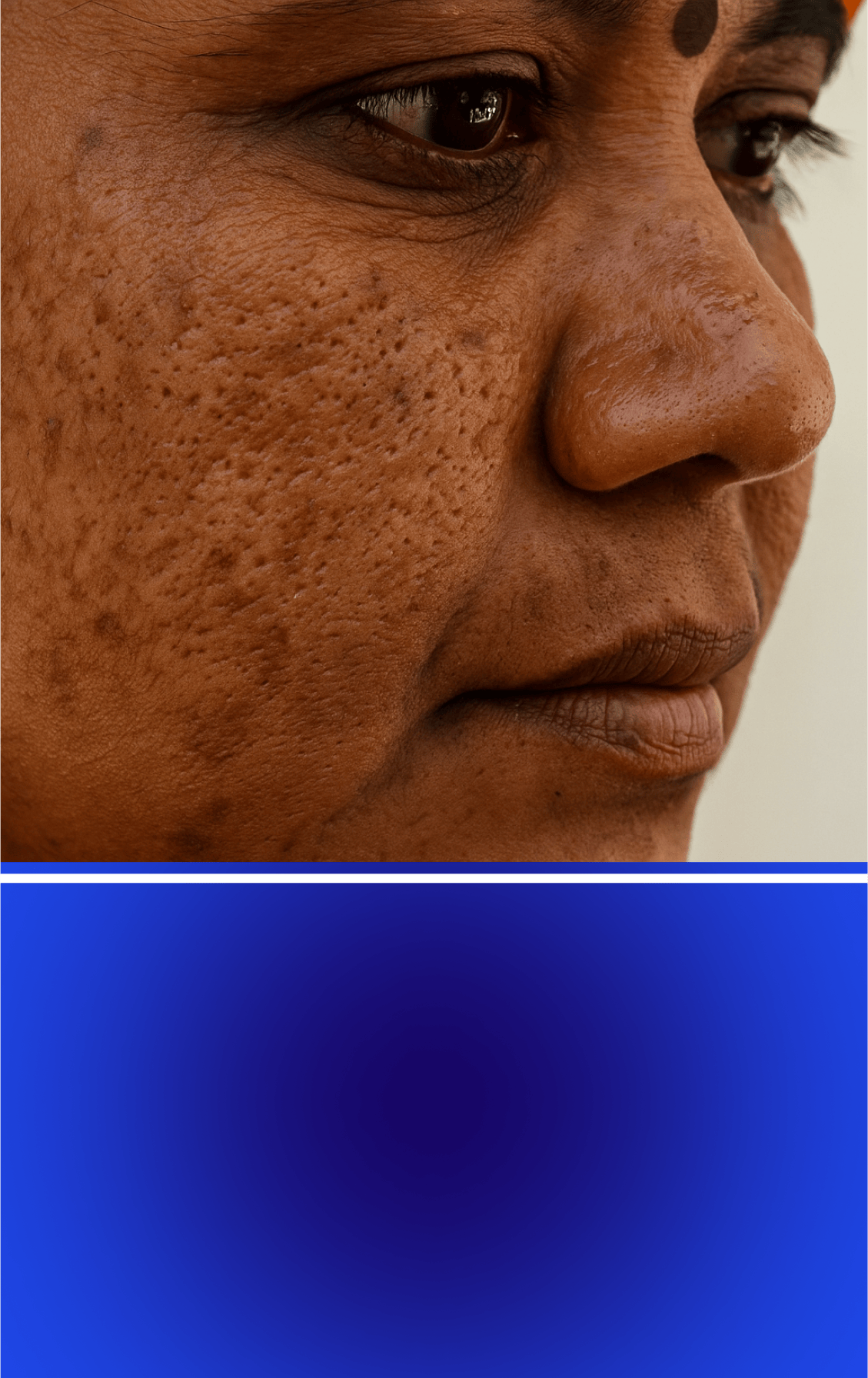Many people living with psoriasis quietly face uncomfortable symptoms and persistent flare-ups that go beyond skin appearance, affecting their comfort, confidence, and overall well-being. With a multitude of dietary advice and conflicting suggestions, it’s easy to feel uncertain about which foods may actually help or worsen your skin.
Nutrition, when guided by scientific expertise and practical insights, offers a reliable path to better psoriasis management. By understanding the role of diet in inflammation and skin health, you can make informed choices that support fewer flare-ups and enhance your everyday quality of life.
This blog shares expert-backed dietary recommendations, practical tips, and everyday meal ideas to help you control psoriasis symptoms, nourish your skin from within, and feel more at ease in your own skin. Whether you are newly diagnosed or looking for new strategies, these psoriasis treatment diet insights will empower you to take a proactive step towards healthier, more comfortable skin.
Overview
- Key dietary changes can help reduce psoriasis flare-ups and improve skin condition.
- Emphasise anti-inflammatory foods like fruits, vegetables, whole grains, and omega-3-rich fish.
- Avoid or limit foods known to trigger inflammation, such as processed foods, saturated fats, and alcohol.
- Maintaining a healthy weight and lifestyle enhances both skin health and treatment effectiveness.
- Get personalised guidance from a dermatologist or nutritionist for best results.
Why Diet Matters in Psoriasis?
Living with psoriasis means managing a condition rooted in inflammation, and what you eat can make a real difference to how often and how severe your flare-ups might be. Understanding the role of a psoriasis treatment diet helps you make choices that not only nourish your body but also support your skin from within.
How does Diet Influence Psoriasis
- Inflammatory Foods and Flare-Ups: Certain foods, especially those high in saturated fats, sugar, and processed ingredients, can fuel inflammation throughout the body. This may trigger or worsen psoriasis symptoms.
- Anti-Inflammatory Potential: By focusing your psoriasis treatment diet on anti-inflammatory foods like colourful fruits and vegetables, fatty fish, nuts, seeds, and whole grains, you help reduce the inflammatory burden that contributes to psoriasis.
- Weight Management: Carrying extra weight is linked to more frequent or severe flare-ups. Healthier eating can help with weight control, which is proven to improve psoriasis outcomes and how well your treatments work.
- Supporting Overall Skin Health: Good nutrition provides the vitamins, minerals, and antioxidants your skin needs to heal and renew itself. Nutrients such as omega-3 fatty acids and vitamin D, for example, support immune balance and skin integrity.
Now that we’ve covered the key benefits of a psoriasis treatment diet, let’s dive into the specific foods you should enjoy and those you might want to limit for healthier, clearer skin.
What to Eat: Recommended Foods for a Psoriasis Treatment Diet

Building your meals around anti-inflammatory, nutrient-rich foods can help calm psoriasis symptoms and boost your overall skin health. Here’s how to focus your psoriasis treatment diet for the best results.
Anti-Inflammatory Foods to Prioritise
- Leafy Greens and Colourful Vegetables: Include spinach, kale, broccoli, carrots, and peppers. These vegetables provide antioxidants that help combat inflammation.
- Fruits: Opt for berries, cherries, oranges, and apples. Their vitamins and antioxidants support skin repair and immunity.
- Fatty Fish: Salmon, mackerel, sardines, and trout are excellent sources of omega-3 fatty acids, which are linked to reduced inflammation.
- Whole Grains: Brown rice, oats, quinoa, and barley serve as good fibre sources to support healthy digestion and steady energy.
- Legumes, Nuts, and Seeds: Beans, lentils, walnuts, flaxseeds, and chia seeds add plant-based protein and healthy fats to your meals.
- Healthy Oils: Choose olive oil, flaxseed oil, or safflower oil for cooking and salad dressings.
Protein Sources to Include
- Lean Meats and Fish: Grilled chicken breast, turkey, fish, and seafood promote satiety and muscle health without adding excess saturated fat.
- Plant-based Proteins: Add tofu, tempeh, and pulses (like lentils and chickpeas) regularly.
- Low-fat Dairy (if tolerated): Milk, yoghurt, or cheese can be consumed in moderation if you have no dairy sensitivities.
Simple Ways to Integrate These Foods
- Start your day with oatmeal topped with berries and flaxseeds.
- Prepare a lunch salad with mixed greens, salmon, and a drizzle of olive oil.
- Snack on a handful of nuts or sliced veggies.
- Make dinner a mix of lentil stew, wild rice, and roasted broccoli.
By centring your psoriasis treatment diet on these foods, you can nourish your skin from the inside out and support your overall well-being.
Now that you know which psoriasis-friendly foods to enjoy, let’s explore the key foods and ingredients to avoid or limit in your psoriasis treatment diet for healthier, calmer skin.
Foods and Ingredients to Avoid or Limit in Your Psoriasis Treatment Diet
While adding psoriasis-friendly foods is important, it’s equally crucial to reduce or avoid items that may worsen inflammation and trigger symptoms. Being mindful of these foods can support clearer, calmer skin and help you better manage your condition through your psoriasis treatment diet.
Major Foods to Limit
- Processed and High-Fat Foods
- Examples: Fried snacks, fast food, packaged treats, and processed meats (like sausages or bacon)
- Why: These foods often contain saturated and trans fats that fuel inflammation.
- Sugary Foods and Refined Carbohydrates
- Examples: Sweets, pastries, biscuits, sugary drinks, white bread, and white rice
- Why: High sugar intake spikes insulin and inflammation, which can exacerbate psoriasis flare-ups.
- Excess Alcohol
- Why: Alcohol not only increases inflammation but can also interfere with certain psoriasis medications and worsen flares. Even moderate consumption may be problematic for some people.
- Nightshade Vegetables (for some individuals)
- Examples: Tomatoes, potatoes, aubergine, bell peppers, chillies
- Why: These may trigger symptoms or flare-ups in certain people, though not everyone is affected. Note your own tolerance and consult your healthcare provider if needed.
- Gluten (if sensitive)
- Why: For those with gluten intolerance or celiac disease, consuming gluten can worsen psoriasis symptoms.
- Salty Foods
- Examples: Processed soups, ready-to-eat packaged meals, crisps
- Why: High salt intake can affect skin hydration and overall health.
Additional Tips
- Read nutrition labels to spot hidden sugars, fats, and additives.
- Minimise takeaways and opt for home-cooked meals.
- If you notice any new symptoms after eating a particular food, consider keeping a food diary to help pinpoint personal triggers.
Now that you understand which foods to avoid in your psoriasis treatment diet, let’s explore popular diet plans that can further support your skin health and symptom management.
Popular Diet Plans that Support a Psoriasis Treatment Diet
Choosing a structured diet plan can make it easier to stick to psoriasis-friendly meals, streamline grocery shopping, and support better symptom management. Here are some popular dietary approaches that have shown benefits for individuals following a psoriasis treatment diet:
Additional Notes
- Personalisation is Key: Not every plan suits everyone. Track your body’s response and consult your healthcare provider before making significant dietary changes.
- Combination Approaches: Many find further benefit by blending elements from different diets (for example, a Mediterranean gluten-free diet).
Now that you’re familiar with popular diet plans for a psoriasis treatment diet, let’s explore nutritional supplements that may provide additional support for your skin health.
Nutritional Supplements That Help in a Psoriasis Treatment Diet
While a balanced psoriasis treatment diet should ideally provide most of the nutrients your body needs, some people may benefit from certain supplements. These can help address nutritional gaps, enhance anti-inflammatory effects, and further support skin health.
Common Supplements to Discuss with Your Doctor
- Omega-3 Fatty Acids (Fish Oil)
- It may help lower inflammation linked to psoriasis symptoms.
- Found in fish oil capsules and certain plant-based omega-3 supplements.
- Aim for dietary sources first, but supplements may be recommended if intake is low.
- Vitamin D
- Many people with psoriasis have low vitamin D levels, especially if sun exposure is limited.
- Supports immune system balance and healthy skin cell growth.
- Supplement only as advised by your healthcare provider after a blood test.
- Vitamin B12 and Folic Acid
- These vitamins may help manage inflammation and support skin repair, especially if you have deficiencies or follow a vegetarian/vegan diet.
- Selenium
- An antioxidant mineral that supports immune health and may help modulate inflammation.
- Probiotics
- Healthy gut bacteria support overall immune function and may positively impact skin health.
Important Considerations
- Always consult your healthcare provider or a registered dietitian before starting supplements. Some can interact with medications, or may not be suitable for your individual health conditions.
- Do not rely solely on supplements; they should enhance, not replace, a well-rounded psoriasis treatment diet.
- Choose high-quality supplements, and follow dosage recommendations carefully.
With a clearer understanding of nutritional supplements in a psoriasis treatment diet, let’s now explore lifestyle habits that can further support your skin health and overall well-being.
Also Read: Body Care Tips for All Seasons
Lifestyle Habits to Support Your Psoriasis Treatment Diet

A holistic approach to psoriasis goes beyond just what you eat. Incorporating healthy lifestyle habits can amplify the positive effects of your psoriasis treatment diet, reduce flare-ups, and improve your overall well-being.
1. Manage Stress Effectively
- Practice relaxation techniques: Regular meditation, mindfulness, deep breathing, or yoga can help calm your mind and reduce stress-induced flares.
- Prioritise self-care: Make time for activities that bring you joy and relaxation each day.
- Seek support: Talking with friends, family, or a therapist can help you manage emotional challenges related to psoriasis.
2. Maintain a Consistent Sleep Schedule
- Aim for 7–8 hours of quality sleep nightly.
- Establish a calming bedtime routine: Limit screens before bed, keep your bedroom cool and dark, and consider gentle stretches or reading.
- Track your sleep: Use a journal or app to note how sleep quality relates to your symptoms.
3. Stay Physically Active
- Find activities you enjoy: Walking, swimming, cycling, or gentle stretching can help support weight management and overall health.
- Be consistent: Aim for at least 150 minutes of moderate exercise each week, as recommended, and tailor it to your comfort level.
- Listen to your body: Choose low-impact exercises during flare-ups to minimise irritation.
4. Protect Your Skin
- Moisturise daily to prevent dryness and cracking.
- Avoid harsh soaps or detergents that can irritate sensitive skin.
- Dress for comfort: Wear loose, breathable clothing made from soft fabrics.
- Be mindful of sun exposure: Limited sun can help some people, but protect your skin and avoid sunburns.
5. Avoid Smoking and Limit Alcohol
- Quit smoking: Smoking can worsen inflammation and is linked to more severe psoriasis.
- Limit alcohol: Alcohol can trigger flare-ups and negatively impact treatment effectiveness.
6. Track Your Progress
- Keep a journal: Note changes in your diet, symptoms, stress levels, and lifestyle habits to identify patterns and triggers.
- Share with your healthcare provider: This information can guide personalised adjustments to your psoriasis treatment diet and management plan.
Now that you have a set of lifestyle habits to reinforce your psoriasis treatment diet, let’s explore sample meal planning tips to help you keep your healthy eating on track all week long.
Sample Meal Plan for a Psoriasis Treatment Diet

A well-organised meal plan can simplify healthy eating and ensure you enjoy a diverse range of nutrients to support your skin and overall wellbeing. Below is a sample 1-day meal plan tailored for a psoriasis treatment diet. Adjust portions and ingredients based on your preferences and dietary needs.
Breakfast
- Oatmeal topped with mixed berries and chia seeds.
- Green smoothie: Spinach, banana, a splash of unsweetened almond milk, and a tablespoon of flaxseed.
- Herbal tea or water.
Morning Snack
- Sliced apple with natural almond or peanut butter.
- A handful of walnuts or pumpkin seeds.
Lunch
- Salmon salad bowl:
- Grilled salmon fillet
- Mixed greens (spinach, kale, arugula)
- Cherry tomatoes, cucumber, and shredded carrot
- Quarter of an avocado
- Drizzle of olive oil and lemon juice
- Whole grain roll (optional)
Afternoon Snack
- Carrot and cucumber sticks with hummus.
- Orange or a cup of berries.
Dinner
- Lentil and vegetable stew: Lentils, zucchini, red bell pepper, carrot, and spinach, simmered with turmeric and garlic.
- Side of brown rice or quinoa.
- Steamed broccoli with a sprinkle of sesame seeds.
Evening Snack (if needed)
- Plain, unsweetened yoghurt with chopped kiwi and sunflower seeds.
Simple Cooking Tips
- Batch cook grains and legumes at the start of the week so they’re ready to add to salads, soups, and bowls.
- Roast a tray of mixed vegetables with olive oil and herbs to use in meals during the week.
- Prepare dressings and dips like olive oil vinaigrette, tahini sauce, or homemade salsa.
- Use fresh or dried herbs and spices (such as turmeric, ginger, cumin, and oregano) to boost flavour and anti-inflammatory benefits.
- Opt for steaming, baking, grilling, or sautéing with healthy oils rather than deep-frying.
Having go-to recipes and a few easy prep strategies can help you stick with a psoriasis treatment diet, make mealtimes more enjoyable, and encourage lasting results for your skin and overall health.
Conclusion
Managing psoriasis is a journey that combines evidence-based dietary strategies with personalised care to help you achieve healthier, calmer, and more resilient skin. By embracing a psoriasis treatment diet rich in anti-inflammatory foods, mindful lifestyle habits, and supportive supplements, you empower your body’s natural ability to reduce flare-ups and promote skin renewal.
At Velantis Dermatology, we integrate scientific research with compassionate guidance to support your psoriasis management. Whether you are navigating triggers, customising your diet, or seeking holistic wellness advice, our team is dedicated to providing practical, real-world solutions tailored to your unique needs.
If you are seeking expert, evidence-based guidance to manage psoriasis through an effective treatment diet and holistic lifestyle support, Velantis Dermatology is here to help. Founded on the principles of scientific rigour, personalised care, and patient empowerment, our team combines clinical expertise with compassionate coaching to support your journey toward clearer, healthier skin.
Discover the perfect integration of nutritional science and practical wellness strategies. Book a Consultation with our MD Dermatologist, Dr. Janani Sree C M, today and take the first step toward reclaiming your skin health and overall wellbeing.
Frequently Asked Questions
Q1: Can food really affect my psoriasis?
A1: Yes, certain foods can promote or reduce inflammation in your body, influencing the frequency and severity of psoriasis flare-ups.
Q2: Are there specific foods to avoid for everyone with psoriasis?
A2: Common triggers include processed foods, alcohol, and sometimes nightshades or gluten, but reactions can vary; monitor your own response.
Q3: What diet is best for psoriasis?
A3: A Mediterranean-style diet rich in fruits, vegetables, whole grains, and omega-3s is commonly recommended by experts.
Q4: Does losing weight help with psoriasis management?
A4: Yes, weight loss in overweight individuals has been clinically shown to reduce psoriasis severity and improve response to treatment.
Q5: Should I take supplements for psoriasis?
A5: Discuss with your doctor before using supplements; omega-3s and vitamin D may be helpful, but not everyone needs them.


.png)




